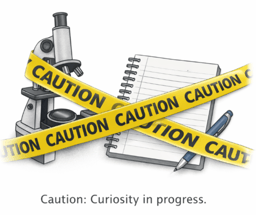Beyond the Headlines: Ensuring Integrity While Advancing Alzheimer’s Research
Published in Healthcare & Nursing, Neuroscience, and Biomedical Research
Recent reports have raised concerns about alleged misconduct and funding misallocation in Alzheimer’s research, shaking public trust in science. But is the full story being told, or are we seeing only the most sensational soundbites? While accountability is essential, focusing solely on controversy risks overshadowing the breakthroughs advancing our understanding of the disease. How do we balance scrutiny with the urgent need for real, evidence-based treatments?
Scientific progress thrives on innovation, rigor, collaboration, and—most importantly—trust. Yet, as highlighted in a recent New York Times article (Jan 24, 2025), concerns over research integrity, study design, and funding priorities have led to questions about how Alzheimer’s research is conducted and supported.
The potential consequences of flawed data are serious. Misguided research directions can divert funding, slow scientific progress, and create unrealistic expectations for patients and families seeking effective treatments. Given the immense burden of Alzheimer’s disease, ensuring both scientific integrity and continued investment in promising approaches is critical.
Alzheimer’s disease remains one of the most formidable medical challenges, striking fear into virtually everyone as they age. It affects millions globally, placing an immense burden on healthcare systems and an overwhelming financial and emotional strain on caregivers. That makes the integrity of research efforts even more critical.
Yet, while addressing alleged misconduct is necessary, narratives that focus primarily on it overshadow the extraordinary work of the vast majority of dedicated researchers who operate with rigor and an unwavering commitment to discovery and the greater public good. Significant strides have been made in recent years in understanding Alzheimer’s—revealing alternative mechanisms beyond conventional models and developing promising therapeutic strategies despite limited funding resources. These achievements, built on rigorous science and technological innovation, often take a backseat in media narratives that emphasize past controversies over present and future progress.
Science has built-in mechanisms for scrutiny and correction—through peer review, independent replication, data-sharing initiatives, national and international scientific meetings, and evolving methodologies. Efforts to enhance transparency, such as preprint servers, open-access data repositories, and AI-assisted fraud detection, are already strengthening the research ecosystem. The field has not ignored past controversies; rather, it has evolved, improving accountability and reproducibility in response.
Modern high-throughput, unbiased analyses interrogate hundreds to thousands of molecular interactions simultaneously, making it harder for selective reporting to reinforce a single dominant theory. In the past, entire careers were often built on findings from a single gene or protein, which, when coupled with intense pressure for funding and recognition, sometimes led to questionable research practices. Today’s systems-level methodologies reduce this risk by shifting toward data-driven models that provide a more comprehensive view of disease biology.
Rather than eroding public trust in research, journalists who want change should use their voices and platforms to reinforce the systems that ensure scientific rigor and to support policies that encourage transparency, replication, and responsible funding allocation. If we want to accelerate the development of effective treatments for Alzheimer’s and other neurodegenerative diseases, public discourse must do more than expose flaws in the system—it must also sustain the investment, innovation, and collaboration needed for real progress.
Paradoxically, the fallout from high-profile allegations of scientific misconduct rarely ends with the individuals involved. While some researchers implicated in controversies move on to other roles, including in industry and policy, the broader scientific community bears the burden of lost trust, diminished funding, and increased scrutiny that can stifle bold, necessary research. And it doesn’t stop there—patients ultimately pay the price. History has shown that when media narratives focus solely on exposing wrongdoing, they often fail to account for the long-term consequences—damaging not just the field but also the very individuals waiting for new treatments. In the case of Alzheimer’s, the cost of eroding public confidence in research extends beyond scientists; it directly affects those who need solutions the most, slowing progress at a time when innovation and information sharing are urgently needed.
Alzheimer’s patients and their families deserve more than narratives that sow distrust in science. Addressing alleged misconduct is essential, but so is supporting a research community that is held accountable, empowered to deliver solutions, and given the resources needed to turn discoveries into life-changing therapies. The challenge before us is not just to call out alleged missteps—it is to strengthen the very ecosystem that will make Alzheimer’s treatments a reality.


Please sign in or register for FREE
If you are a registered user on Research Communities by Springer Nature, please sign in